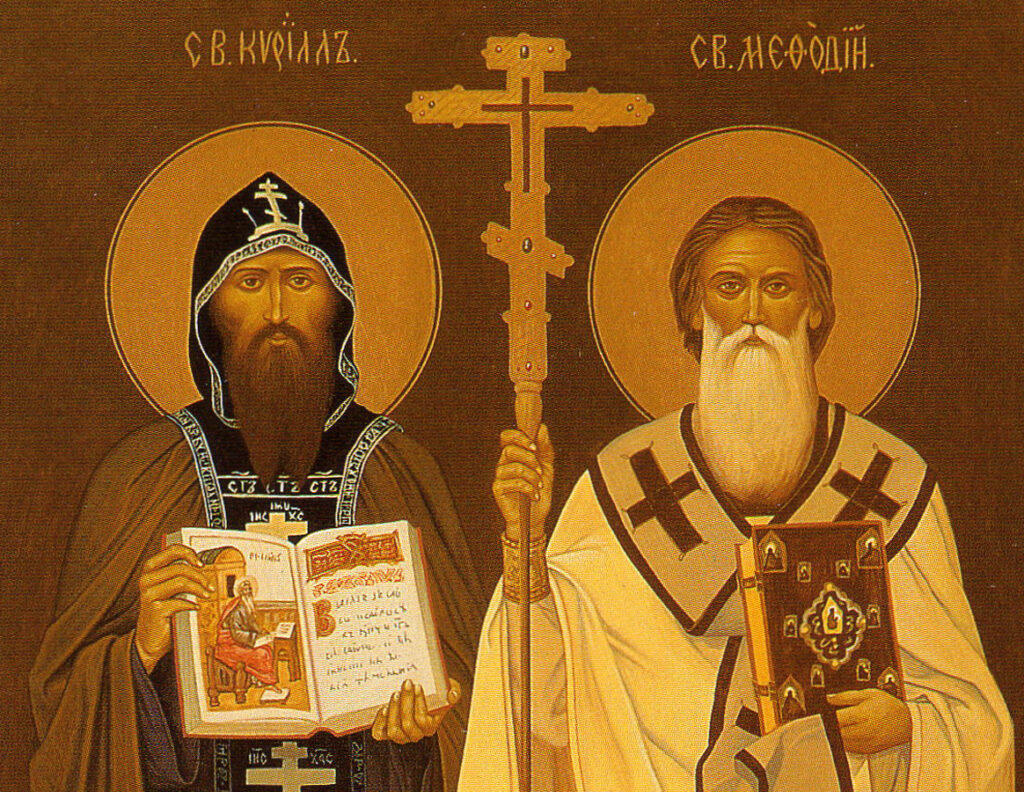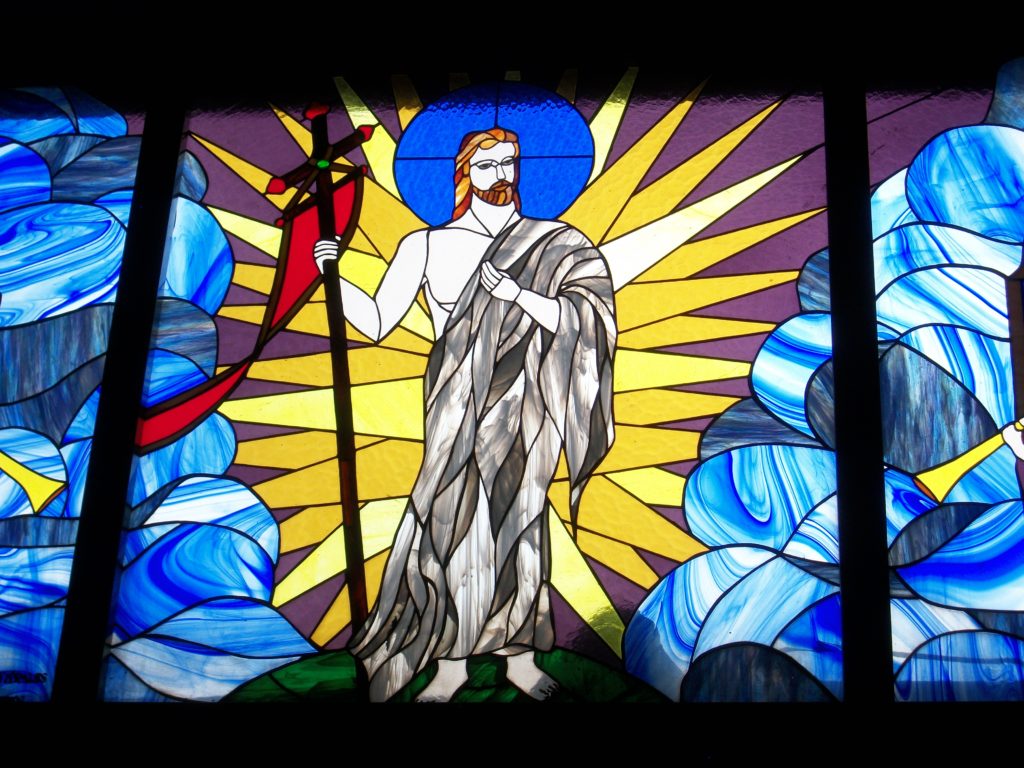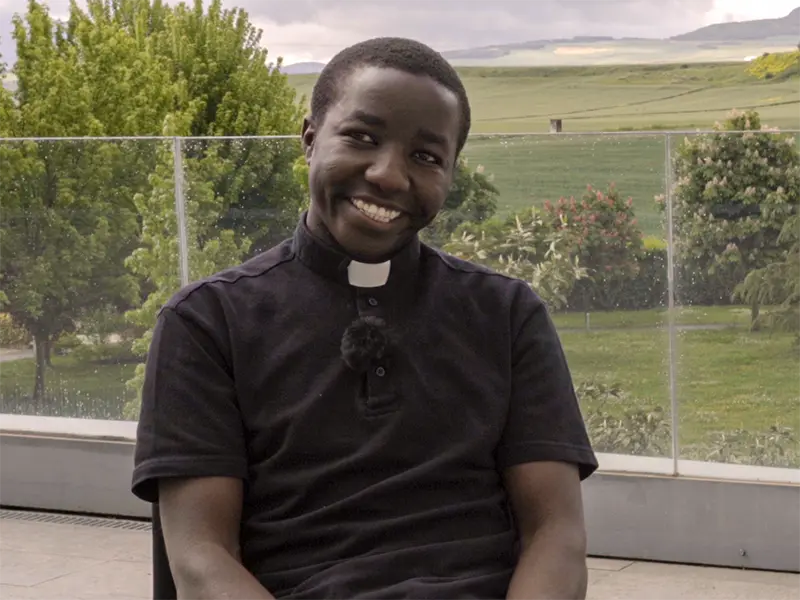Saints Cyril, Monk, and Methodius, Bishop, October 14
Patrons of Europe

The administrator and the scholar
The civil registry separates them by only two years. The eldest is Methodius (actually called Michael) who was born in 825 in Thessalonica, where Cyril (named Constantine) was born in 827. History initially sees them divided. The first soon distinguished himself as a skilled administrator and earned himself the position of archon of a province of the Byzantine Empire. The second received distinguished instruction in Constantinople – grammar, rhetoric, astronomy, and music – with which he should become a high imperial dignitary. But when this happened, Cyril had a different idea and rejected him.
The new alphabet of the Bible
Around the age of 35, Emperor Michael III thought of Cyril when the Chazari of the Sea of Azov asked for the sending of a man of letters who knew how to argue with Jews and Saracens. It is at this time that the two brothers meet, beginning the first of the many missions they will undertake together. Two years later, in 863, the time came for Great Moldavia. The purpose of this mission is to contrast the Germanic influence with two missionaries who knew Slavic. But Cyril and Methodius go further. Probably, realizing the difficulty of communicating the Scriptures through the official languages, Latin and Greek, both brothers (it is said that after fasting and prayers) invent a new alphabet, the “Glagolitic”, universally known as “Cyrillic”, which contains forty characters that derive for the most part from medieval Greek cursive.
Gospel of the East
Their work is so extraordinary that the Pope, once called to Rome, receives Cyril and Methodius by going out to meet them in procession. The great fatigue they undergo undermines the health of the younger. On 14 February 869, Cyril, who had become a monk, died after an illness. Methodius, for his part, was consecrated bishop and continued his mission as always, overcoming hostilities and misunderstandings, and instructing disciples in the translation of sacred texts. He died in 885 and was buried in the Cathedral of Velehrad (today in the Czech Republic). On 31 December 1980, with the Apostolic Letter Egregiae virtutis, John Paul II proclaimed them Patrons of Europe.
Related

Reflection by Bishop Enrique Díaz: Alleluia, alleluia
Enrique Díaz
20 April, 2025
5 min

Christ is Risen! Alleluia! Commentary by Fr. Jorge Miró
Jorge Miró
20 April, 2025
3 min

Easter: Mystery of Freedom
Carlos J. Gallardo
20 April, 2025
5 min

“Being Catholic in Tanzania is a source of pride”
Fundación CARF
16 April, 2025
6 min
 (EN)
(EN)
 (ES)
(ES)
 (IT)
(IT)

